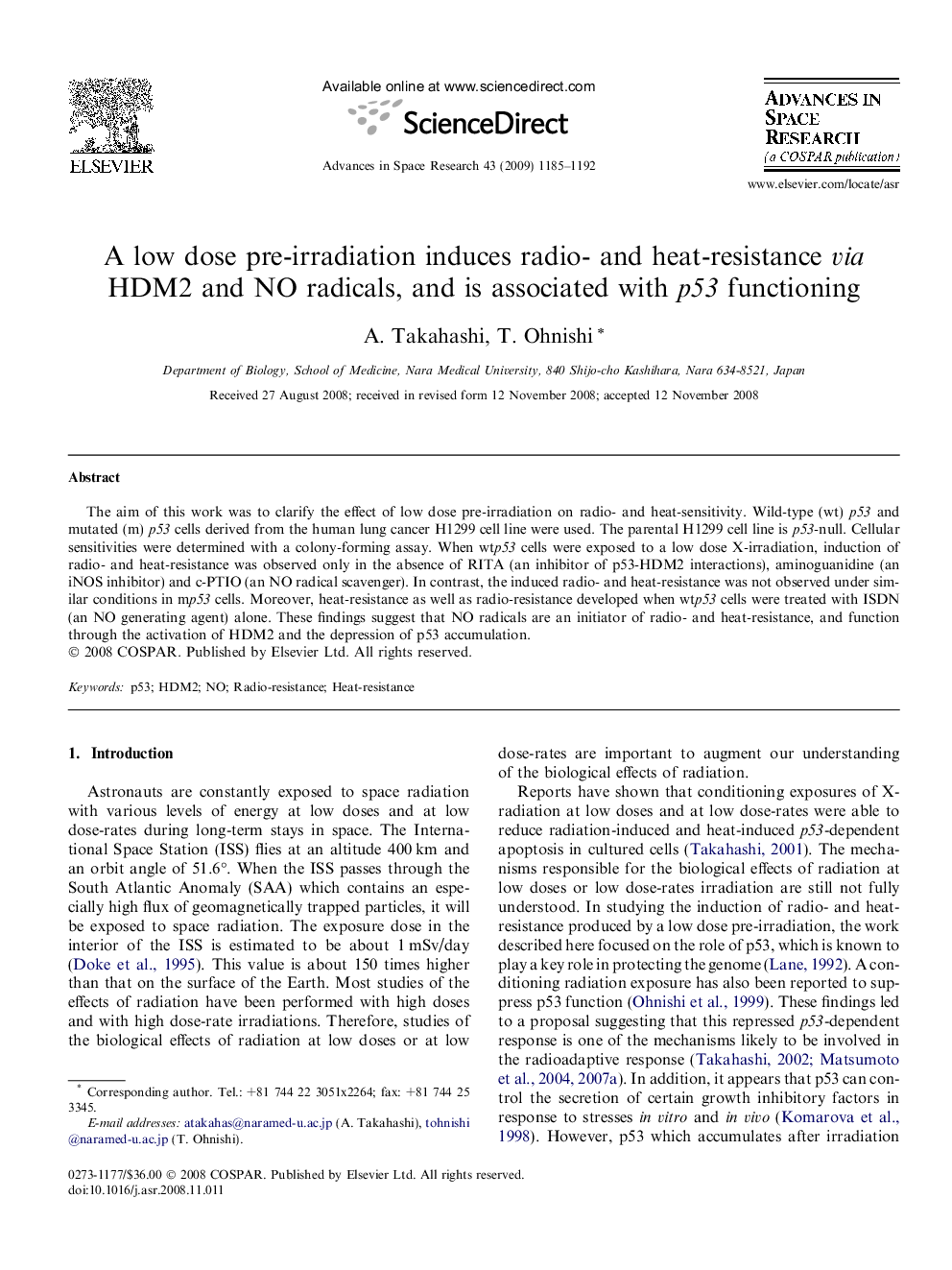| Article ID | Journal | Published Year | Pages | File Type |
|---|---|---|---|---|
| 1765697 | Advances in Space Research | 2009 | 8 Pages |
Abstract
The aim of this work was to clarify the effect of low dose pre-irradiation on radio- and heat-sensitivity. Wild-type (wt) p53 and mutated (m) p53 cells derived from the human lung cancer H1299 cell line were used. The parental H1299 cell line is p53-null. Cellular sensitivities were determined with a colony-forming assay. When wtp53 cells were exposed to a low dose X-irradiation, induction of radio- and heat-resistance was observed only in the absence of RITA (an inhibitor of p53-HDM2 interactions), aminoguanidine (an iNOS inhibitor) and c-PTIO (an NO radical scavenger). In contrast, the induced radio- and heat-resistance was not observed under similar conditions in mp53 cells. Moreover, heat-resistance as well as radio-resistance developed when wtp53 cells were treated with ISDN (an NO generating agent) alone. These findings suggest that NO radicals are an initiator of radio- and heat-resistance, and function through the activation of HDM2 and the depression of p53 accumulation.
Related Topics
Physical Sciences and Engineering
Earth and Planetary Sciences
Space and Planetary Science
Authors
A. Takahashi, T. Ohnishi,
